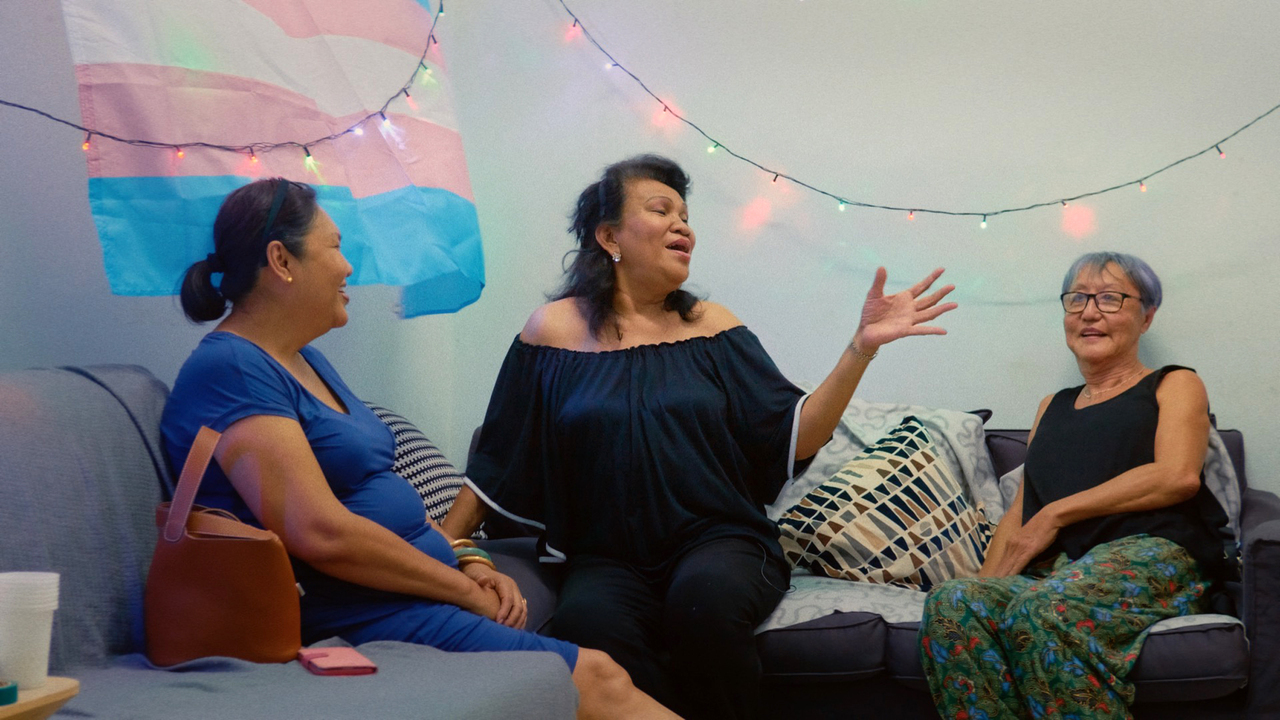Some Women film hopes to show that being transgender is not 'sexual deviancy'
Sign up now: Get ST's newsletters delivered to your inbox

A still from the film Some Women, opening in cinemas on March 24.
PHOTO: TIGER TIGER PICTURES
Follow topic:
SINGAPORE - In the documentary Some Women, film-maker Quen Wong shows herself being physically close to husband Francis Bond. They hold hands, cuddle and kiss - just like any ordinary couple.
In a film filled with conversation and visuals that deal with the turbulent journey Wong and others have taken as transgender women in Singapore, the quiet moments of intimacy are akin to hitting the pause button.
Wong says she included them because she wanted to dispel the notion that being transgender is "some sort of sexual deviancy".
"There is the trope of the monstrous trans body, of the monstrous trans identity. I wanted to turn that trope into a story of intimacy, of normalcy. That there is no shame whatsoever about it," she says.
Some Women opens in cinemas on March 24.
The film received its world premiere at 2021's Singapore International Film Festival, where it won the Audience Choice Award.
Wong, 46, spoke to The Straits Times at an online interview from her home in the Czech Republic. She recently moved there to be with her Australian husband Bond, 54, who teaches computational linguistics at a university.
The film is Wong's debut feature after a career spent making films for CNA, Mediacorp, National Geographic Channel and Discovery Channel Asia-Pacific.
She considers herself lucky to have been able to transition with the backing of her family, especially from her mother. After serving national service, Wong left for Britain.
"It was a sacrifice that my mother and my family made for me. We are from an ordinary middle-class family. There wasn't a lot of money. My family saved to send me there so I could transition without prying eyes - so I could literally be someone else without judgment," she says.
There was the hope that she would return and start life with a new identity. But in time, she had to accept that there were connections she could not erase, such as with members of her extended family. With some effort - "and a lot of love", she adds - those who knew the pre-transition Wong adapted.
"At the beginning, they were misgendering me. But over time, as I started to be more visible to them, they changed their minds and used the right pronouns," she says.
Some Women started life as an idea from trans activist June Chua, co-founder of The T Project, a social service organisation for the transgender community. She had asked Wong to make a film about the Bugis Street transgender community, which had thrived there from the 1950s to the mid-1980s and made the spot a tourist magnet.
Later, Tiger Tiger Pictures, film-maker and theatre practitioner Glen Goei's production house, became involved. Some Women is part of the label's Unseen film series, which aims to give marginalised communities in South-east Asia a voice.
The film contrasts Wong's story with those of two other transgender women. Ms Sanisa, who picked the stage name Anita, is older and filled with bittersweet memories of Bugis Street. Ms Lune Loh, who is younger, is outspoken and unafraid of facing legal repercussions for her LGBTQ (lesbian, gay, bisexual, transgender, questioning) activism.
While making the documentary, Wong saw that she was asking others to expose themselves and risk stigma and discrimination, while taking no such risks herself.
She says: "As a trans woman, was it fair that I 'kept stealth' behind the camera? As I was asking these difficult questions, I felt a responsibility to stand in solidarity with them.
"I also wanted to take back agency. A lot of trans stories have been told by the mainstream media and not in the most accurate way. I thought this was the perfect opportunity to weave a story of transformation into the film - a story that is authentic."
Some Women opens in cinemas on March 24.

